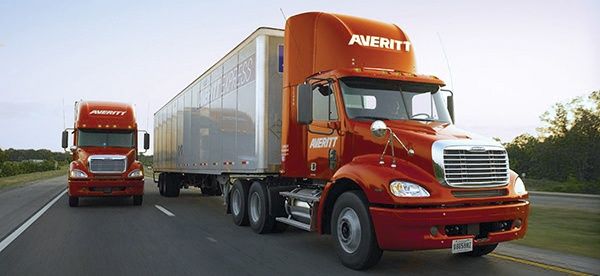Green is everywhere! From product packaging to energy-efficient warehouses to waste reduction, supply chain professionals are paying closer attention to how their practices impact the environment.
As corporate green initiatives become more popular, many shippers have on their minds the term “carbon footprint,” the measurable impact a specific company has on the environment. And one of the most common areas under the microscope as companies begin to measure and impact their carbon footprint is transportation, the biggest source of carbon emissions in most supply chains.
Here are some things supply chain professionals should expect from their transportation partners when it comes to environmental responsibility.
Traits of an Environmentally Responsible Carrier
ACCOUNTABILITY
One of the challenges of choosing green carriers is that few standards have been universally adopted. Many shippers are looking to see if their carriers are members of the Environmental Protection Agency’s SmartWay Transport Partnership. To find out if your carriers participate in SmartWay or for more info, visit www.epa.gov/smartway.
MEASURABLE RESULTS
Your carriers should be able to provide quantitative results on their performance in key areas such as emissions reductions and fuel efficiency. Any carrier participating in SmartWay should have this information readily available.
CONTINUOUS IMPROVEMENT
Green carriers should strive for and achieve year-over-year emissions reductions.
UPDATED EQUIPMENT
Choose carriers whose tractor fleets operate as efficiently as possible. Are your carriers' tractors less than three years old? The older the fleet, the less environmentally friendly.
INNOVATIVE TECHNOLOGY
Do your carriers use the latest technology to reduce emissions and increase fuel efficiency? Leading carriers use sophisticated technology to monitor individual engine performance and plan routes efficiently.
EDUCATION AND INCENTIVES
The greenest carriers know technology and equipment are only tools in the hands of people. The most effective carriers make it a priority to educate their people on environmentally friendly practices and give them the incentives to follow through. Ask your carriers how they promote green to their employees.
MODE FLEXIBILITY
Carriers who can provide multiple mode solutions — such as both truckload and intermodal services — bring more value to your supply chain. Not only can this flexibility reduce your transportation costs, but a carrier’s ability to move freight from road to rail when feasible also reduces their carbon footprint.
Whatever your motivation — profits, PR or protecting the earth — going green makes sense. Ask your carriers what they’re doing to protect our world now and into the future.










